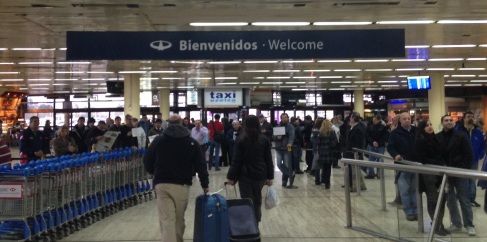Before coming to Buenos Aires, I had been doing the pescatarian thing for about a year. Not to save the world, or the animals, or anything noble else noble, but more-so just to try something new for myself that I ended up really enjoying (and partially because of the because of the mystery meat situation in the US & Monsanto). However, I feel like food is an essential element of any culture; the West Coast of the US, for example, is famous for the In-and-Out burger, whereas Buenos Aires is well known for having incredible meats. So in order to take in my full dosage of culture here I decided to start eating meat again. I also don’t like being picky, especially when traveling and/or living in someone elses home for 4 months. These days, I consider myself a “domestic pescatarian” and have been enjoying steaks and other awesome food down here. Here are some of my favorite cheap and quick places to snack in the city:
 1) Chinatown Roadside Vendors
1) Chinatown Roadside Vendors
On my walk to school there are a few little restaurants facing the sidewalk. They've got all sorts of food on sticks (tofu, chicken, pork, beef, egg rolls, etc..) ready to be deep fried and served to you! An incredible snack always under 4 dollars.





